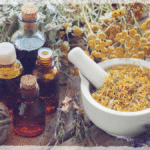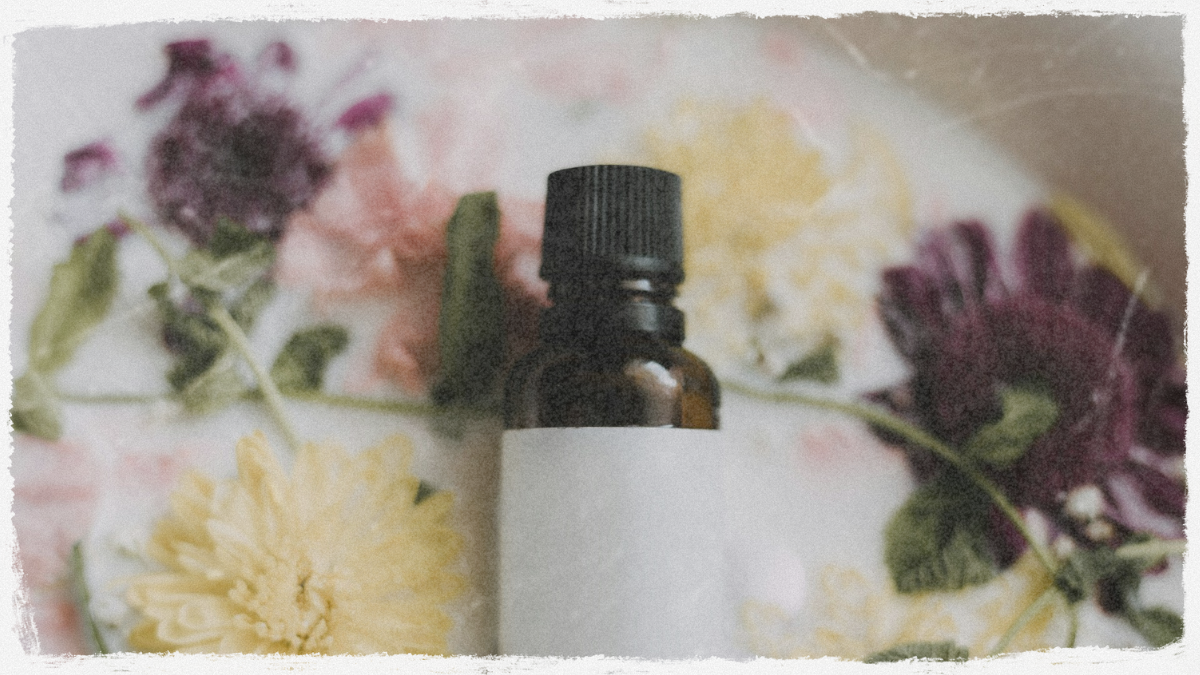What is Aromatherapy?
Hello, wellness seekers! 🌸 Have you ever felt instantly calmer, more energized, or even nostalgic just by smelling a certain scent? That’s the magic of aromatherapy — the art and science of using essential oils extracted from plants to promote physical, emotional, and spiritual well-being.
Aromatherapy has roots that go back thousands of years, used by ancient Egyptians, Chinese, and Indians in beauty rituals, healing practices, and spiritual ceremonies. Today, it blends traditional wisdom with modern science to offer simple, natural tools that anyone can use at home.
2. How Does Aromatherapy Work?
The sense of smell is closely linked to the limbic system, a part of the brain that controls emotions, memories, and certain physiological responses. When you inhale essential oils, their aromatic molecules stimulate your olfactory nerves, triggering emotional and physical effects.
This connection explains why scents can:
- Relieve stress and anxiety
- Improve sleep quality
- Enhance mood and mental clarity
- Reduce pain and inflammation
- Support respiratory and immune health
3. Popular Essential Oils and Their Benefits
Here’s a quick guide to some of the most beloved essential oils and what they can do for you:
- Lavender: Known for calming nerves, improving sleep, and soothing skin irritations.
- Peppermint: Refreshes the mind, eases headaches, and aids digestion.
- Eucalyptus: Opens up airways, fights congestion, and has antimicrobial properties.
- Tea Tree: A powerful antiseptic, great for skin conditions and infections.
- Lemon: Boosts energy, uplifts mood, and acts as a natural cleanser.
- Frankincense: Used in meditation, reduces inflammation, and supports skin health.
- Chamomile: Soothes nerves, supports relaxation, and helps with skin healing.
- Rosemary: Enhances memory, stimulates hair growth, and relieves muscle pain.
4. How to Use Essential Oils Safely
Essential oils are potent and should be used carefully to avoid irritation or adverse reactions:
- Dilution: Always dilute essential oils with carrier oils (like jojoba, coconut, or almond oil) before applying to the skin. A typical ratio is 2-3 drops of essential oil per teaspoon of carrier oil.
- Patch Test: Before widespread use on skin, apply a small diluted amount to test for allergic reactions.
- Diffusers: Using an essential oil diffuser is a popular way to enjoy the benefits aromatically.
- Inhalation: Simply smelling the oil from the bottle or a tissue can be effective.
- Avoid ingestion: Do not ingest essential oils unless under the guidance of a qualified professional.
- Special populations: Pregnant women, children, and those with health conditions should consult healthcare providers before use.
5. DIY Aromatherapy Recipes You Can Try Today
Here are some simple, effective recipes to bring aromatherapy into your daily routine:
Relaxing Lavender Bath Salts
Mix Epsom salts with dried lavender flowers and 10 drops of lavender essential oil. Add to a warm bath for a calming soak.
Peppermint Cooling Roller for Headaches
Combine 5 drops of peppermint essential oil with 10 ml of carrier oil in a roller bottle. Apply to temples and neck for a refreshing headache relief.
Citrus Room Spray for Energy
Mix 10 drops of lemon essential oil, 5 drops of orange oil, and distilled water in a spray bottle. Use to freshen up your space and boost your mood.
Eucalyptus Steam Inhalation for Congestion
Add 3 drops of eucalyptus oil to a bowl of hot water. Cover your head with a towel and inhale deeply for 5-10 minutes.
Did you know? Cleopatra was known for her use of fragrant oils and perfumes, believing they held healing powers and could attract love and success.
7. The Science Behind Aromatherapy: What Research Says
Modern studies have begun to validate some of the traditional uses of essential oils:
- Research shows lavender can reduce anxiety and improve sleep quality in various clinical trials.
- Peppermint oil has been found effective in relieving tension headaches.
- Tea tree oil demonstrates strong antimicrobial effects against bacteria and fungi.
- Some studies suggest that inhaling citrus oils can elevate mood and cognitive function.
While more research is needed, these findings support aromatherapy as a complementary wellness tool.
8. Common Questions About Aromatherapy
- Can I use essential oils on my pets?
Some oils are safe in very small amounts, but many are toxic to animals. Always research or consult a vet first. - How long do essential oils last?
Generally, 1-3 years if stored in dark bottles away from heat and sunlight. - Can I mix oils together?
Yes! Blends can be made, but be mindful of each oil’s strength and potential skin sensitivity.
9. Where to Buy Quality Essential Oils?
Look for:
- 100% pure, therapeutic-grade oils
- Transparent sourcing and testing information
- Organic or wildcrafted when possible
- Positive customer reviews and reputable brands
10. Wrap Up: Bring Aromatherapy Into Your Life
Aromatherapy is a beautiful, natural way to nurture your mind, body, and spirit. Whether you’re diffusing calming lavender or rolling on invigorating peppermint, these simple practices can transform your daily wellness routine.
At The Herbatica, we’re excited to share more recipes, tips, and stories to help you harness the power of plants in your life.
Which essential oil are you eager to try? Let us know in the comments below!
Disclaimer:
I love sharing aromatherapy tips, but this is not medical advice. Please consult your healthcare provider before starting new essential oils, especially if pregnant or with health conditions.
Boost your immune system naturally with these Top 10 Immune-Boosting Herbs
YOU MAY ALSO LIKE:
- 20 Journal Prompts for Emotional Clarity & Soft Spiritual Growth
 There’s something sacred about sitting down with a warm cup of herbal tea, a softly burning candle, and an open journal waiting to hold the truths you’ve been carrying. In our fast-moving world, emotional clarity often slips away quietly, buried under to-do lists, expectations, and digital noise. But clarity isn’t found in grand moments—it’s found… Read more: 20 Journal Prompts for Emotional Clarity & Soft Spiritual Growth
There’s something sacred about sitting down with a warm cup of herbal tea, a softly burning candle, and an open journal waiting to hold the truths you’ve been carrying. In our fast-moving world, emotional clarity often slips away quietly, buried under to-do lists, expectations, and digital noise. But clarity isn’t found in grand moments—it’s found… Read more: 20 Journal Prompts for Emotional Clarity & Soft Spiritual Growth - Herbal Baths, Candles & Cozy Nights: Creating Your Evening Cottage Wellness Routine
 As the sun slowly dips behind the horizon and the soft whisper of leaves fills the air, there is a quiet magic in the transition from day to night. Sitting in a small cottage surrounded by nature, I’ve discovered that the evening is a sacred space, a time to nourish the body, mind, and spirit. Incorporating herbal… Read more: Herbal Baths, Candles & Cozy Nights: Creating Your Evening Cottage Wellness Routine
As the sun slowly dips behind the horizon and the soft whisper of leaves fills the air, there is a quiet magic in the transition from day to night. Sitting in a small cottage surrounded by nature, I’ve discovered that the evening is a sacred space, a time to nourish the body, mind, and spirit. Incorporating herbal… Read more: Herbal Baths, Candles & Cozy Nights: Creating Your Evening Cottage Wellness Routine - 🌿 Best Aromatherapy Recipes You Can Try: Boost Your Mood, Energy, and Calm
 🌸 Introduction: The Magic of Aromatherapy I still remember the first time I blended lavender and sweet orange oil in my tiny cottage kitchen. The aroma wrapped around me like a warm hug, grounding yet uplifting. That moment was when I truly understood what aromatherapy could do: it touches both body and spirit. Aromatherapy is not… Read more: 🌿 Best Aromatherapy Recipes You Can Try: Boost Your Mood, Energy, and Calm
🌸 Introduction: The Magic of Aromatherapy I still remember the first time I blended lavender and sweet orange oil in my tiny cottage kitchen. The aroma wrapped around me like a warm hug, grounding yet uplifting. That moment was when I truly understood what aromatherapy could do: it touches both body and spirit. Aromatherapy is not… Read more: 🌿 Best Aromatherapy Recipes You Can Try: Boost Your Mood, Energy, and Calm - Herbs for Protection: Ancient Magic for Modern Souls
 🌿 Introduction: The Protective Power of Nature It’s early morning.Soft mist curls above the damp earth as you step barefoot into your garden. Dewdrops shimmer on rosemary leaves, lavender hums with gentle scent, and somewhere deep inside you — a sense of calm rises. You pick a small bundle of sage and thyme, not just… Read more: Herbs for Protection: Ancient Magic for Modern Souls
🌿 Introduction: The Protective Power of Nature It’s early morning.Soft mist curls above the damp earth as you step barefoot into your garden. Dewdrops shimmer on rosemary leaves, lavender hums with gentle scent, and somewhere deep inside you — a sense of calm rises. You pick a small bundle of sage and thyme, not just… Read more: Herbs for Protection: Ancient Magic for Modern Souls - 🌿 Alfalfa (Medicago Sativa)
 A Humble Green with a Mighty Spirit Alfalfa — often called The Father of All Foods — has been cherished for centuries for its incredible nutritional and spiritual power. From ancient Middle Eastern fields to modern herbal apothecaries, this vibrant green plant carries with it a story of fertility, renewal, and abundance. Though it might look like simple… Read more: 🌿 Alfalfa (Medicago Sativa)
A Humble Green with a Mighty Spirit Alfalfa — often called The Father of All Foods — has been cherished for centuries for its incredible nutritional and spiritual power. From ancient Middle Eastern fields to modern herbal apothecaries, this vibrant green plant carries with it a story of fertility, renewal, and abundance. Though it might look like simple… Read more: 🌿 Alfalfa (Medicago Sativa)


